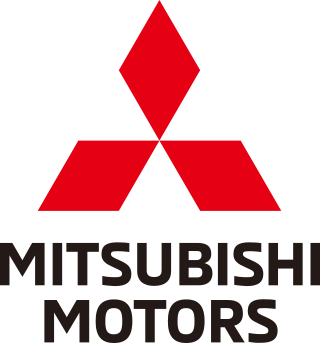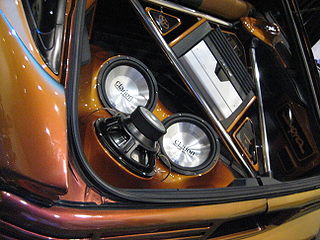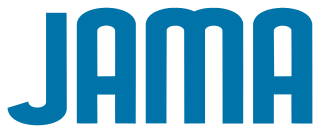
Datsun was a Japanese automobile manufacturer brand owned by Nissan. Datsun's original production run began in 1931. From 1958 to 1986, only vehicles exported by Nissan were identified as Datsun. Nissan phased out the Datsun brand in March 1986, but relaunched it in June 2013 as the brand for low-cost vehicles manufactured for emerging markets. Nissan considered phasing out the Datsun brand for a second time in 2019 and 2020, eventually discontinuing the struggling brand in April 2022.

Nissan Motor Co. Ltd. is a Japanese multinational automobile manufacturer headquartered in Yokohama, Kanagawa, Japan. The company sells its vehicles under the Nissan and Infiniti brands, and formerly the Datsun brand, with in-house performance tuning products under the Nismo and Autech brands. The company traces back to the beginnings of the 20th century, with the Nissan zaibatsu, now called Nissan Group.

Mitsubishi Motors Corporation is a Japanese multinational automobile manufacturer headquartered in Minato, Tokyo, Japan. In 2011, Mitsubishi Motors was the sixth-largest Japanese automaker and the 19th-largest worldwide by production. Since October 2016, Mitsubishi has been one-third (34%) owned by Nissan, and included in the Renault–Nissan–Mitsubishi Alliance.

Infiniti is the luxury vehicle division of the Japanese automaker Nissan. Infiniti officially started selling vehicles on November 8, 1989, in North America. The marketing network for Infiniti-branded vehicles included dealers in over 50 countries in the 2010s. As of 2020, there were 25 markets served by new car dealers. The main markets are North America, China, and the Middle East.

The Infiniti M is a line of mid-size luxury (executive) cars from the Infiniti luxury division of Nissan. From 2013 on it has been marketed as the Infiniti Q70, reflecting the company's new naming scheme.

Yulon Motor Co., Ltd. is a Taiwanese automaker and importer. Taiwan's biggest automaker as of 2010, Yulon is known for building Nissan models under license. The original romanization of the company's name is Yue Loong, but in 1992 the company renewed its logo and switched to the shorter Yulon name. Historically, it is one of Taiwan's "big four" automakers. The company has over time evolved as a holding company that encompassed multiple public entities such as Yulon-Nissan Motor, Yulon Financial, Yulon Rental, Carnival Industrial Corporation and others. The group currently has a rivalry with Hotai Motor Group as the two largest Taiwanese automotive companies.

The Nissan Cima is a luxury sedan manufactured and marketed by Nissan for the Japanese market. The name Cima is derived from Spanish for "summit". Earlier generations featured a hood ornament with an image of an acanthus leaf. The acanthus leaf was commonly used by classical Greeks to make a wreath for use as a crown.
Dongfeng Motor Company Limited, most commonly known in English-language sources as Dongfeng Nissan, is a Chinese automobile manufacturing company headquartered in Wuhan, Hubei. It is a 50–50 joint-venture between Dongfeng Motor Group and Nissan Motors. It produces passenger cars under the Nissan marque and commercial vehicles under the Dongfeng marque.

The Faurecia Clarion Electronics Co., Ltd. is a Japanese manufacturer of car audio, automotive navigation systems, AutoPCs, visual equipment, bus equipment, and communication equipment. It is since 2019 fully owned by Faurecia Clarion Electronics.

Japan Automobile Manufacturers Association, or JAMA, is a trade association with its headquarters in Tokyo, Japan. It was founded in April 1967 and serves as a platform for the automakers of Japan to share technological developments and management practices. There are currently 14 member companies, manufacturing not only cars, but trucks and motorcycles as well. The organization also deals with the manufacturing and distribution of vehicle parts around the world. Together, the companies of JAMA hold a vast share of the markets in the United States, Europe, and many developing countries. JAMA also has offices located in Beijing, Singapore, Washington, D.C., Toronto and Brussels, Belgium.

Andrew Charles Palmer is an English automotive executive and engineer. He has been described as the 'Godfather of EVs' due to his work launching the Nissan Leaf in 2010 whilst COO at the Japanese company. Palmer is also known for launching Aston Martin's first SUV, the DBX, and first mid-engined sports car, Valkyrie, during his tenure as CEO from 2014 to 2020. Palmer was previously CEO and Executive Vice-chairman of electric bus and van company, Switch. He resigned from this role in 2022. Palmer was appointed Interim CEO of PodPoint in July 2023.
Dongfeng Motor Corporation Ltd. is a Chinese state-owned automobile manufacturer headquartered in Wuhan, Hubei. Founded in 1969, it is currently the third largest of the "Big Four" state-owned car manufacturers of China, namely: SAIC Motor, FAW Group, Dongfeng Motor Corporation, and Changan Automobile, with car sales of 5.37 million, 3.50 million, 3.28 million and 2.30 million in 2021 respectively.

The automotive industry in Japan is one of the most prominent and largest industries in the world. Japan has been in the top three of the countries with the most cars manufactured since the 1960s, surpassing Germany. The automotive industry in Japan rapidly increased from the 1970s to the 1990s and in the 1980s and 1990s, overtook the U.S. as the production leader with up to 13 million cars per year manufactured and significant exports. After massive ramp-up by China in the 2000s and fluctuating U.S. output, Japan is currently the third largest automotive producer in the world with an annual production of 9.9 million automobiles in 2012. Japanese investments helped grow the auto industry in many countries throughout the last few decades.

The Renault–Nissan–Mitsubishi Alliance, originally known as the Renault–Nissan Alliance, is a French-Japanese strategic alliance between the automobile manufacturers Renault, Nissan and Mitsubishi Motors, which together sell more than one in nine vehicles worldwide. Renault and Nissan are strategic partners since 1999 and have nearly 450,000 employees and control eight major brands: Renault, Nissan, Mitsubishi, Infiniti, Renault Korea, Dacia, Alpine, and Venucia. The car group sold 10.6 million vehicles worldwide in 2017, making it the leading light vehicle manufacturing group in the world. The Alliance adopted its current name in September 2017, one year after Nissan acquired a controlling interest in Mitsubishi and subsequently made Mitsubishi an equal partner in the Alliance.

Amati was a proposed luxury brand announced by Mazda in August 1991 as part of Mazda's expansion plan with the launch of the Autozam, Eunos, and ɛ̃fini marques in hopes of becoming Japan's 3rd largest automaker. It was scheduled to launch in 1994 as a competitor to fellow Japanese luxury car marques Acura, Infiniti and Lexus as well as American and European luxury vehicles. However, when the Japanese economy collapsed in early 1992 Mazda faced a liquidity shortage and was unable to complete development of the brand. Mazda announced the cancellation of the Amati brand in October 1992 and the completed vehicles were sold under Mazda's existing brand names.

RCI Banque SA, trading as Mobilize Financial Services, is a France-based international company that is a wholly owned subsidiary of Renault and part of Renault's Mobilize unit. RCI Banque specialises in automotive financing, insurance, and related activities for the Renault group brands globally for the Nissan group brands in Europe, Russia, Asia and South America; and for Mitsubishi Motors in the Netherlands.

The Infiniti Q30 is a subcompact executive car built and sold by Nissan's Infiniti luxury brand between 2016 and 2019. The Q30 is built on the third-generation Mercedes-Benz A-Class platform to create a small, premium hatchback. The Q30 is a result of the Nissan, Renault and Mercedes partnership agreement to share technology. It ceased production in the UK in mid-2019 as the brand withdrew from Europe altogether at the same time. A modified version was also marketed under the name QX30, which offers higher ground clearance and crossover design attributes in order to be marketed as a crossover.

Tan Chong Motor Holdings Berhad (MYX: 4405), also known as the TCMH Group or simply Tan Chong Motor (TCM) is a Malaysia-based multinational corporation that is active in automobile assembly, manufacturing, distribution and sales, but is best known as the franchise holder of Nissan vehicles in Malaysia. The company was founded in 1957 by two Malaysian entrepreneurs, Tan Yuet Foh and Tan Kim Hor, with ambitions of importing and selling Datsun cars from Japan. Tan Chong Motor Holdings Berhad was incorporated on 14 October 1972, and in 1974, the company was listed on the Kuala Lumpur Stock Exchange.

The automotive industry in the Philippines is one of the largest in the Asia-Pacific region, with approximately 441.4 thousand vehicles sold in 2023. Most of the vehicles sold and built in the Philippines are from foreign brands. For the most part, the Philippines is dominated by Japanese automobile manufacturers like most of its ASEAN neighbors. The automobile production in the country is covered under the Philippine Motor Vehicle Development Program implemented by the Board of Investments. In addition, there are also a small number of independent firms who assemble and fabricate jeepneys and other similar vehicles, using surplus engines and drivetrain parts mostly from Japan.

Toyota Motor Korea Co., Ltd. is the South Korean subsidiary of Japan-based conglomerate Toyota, which specializes in the sales and distribution of Toyota and Lexus automobiles in South Korea.


















